Posted on 3/28/2025
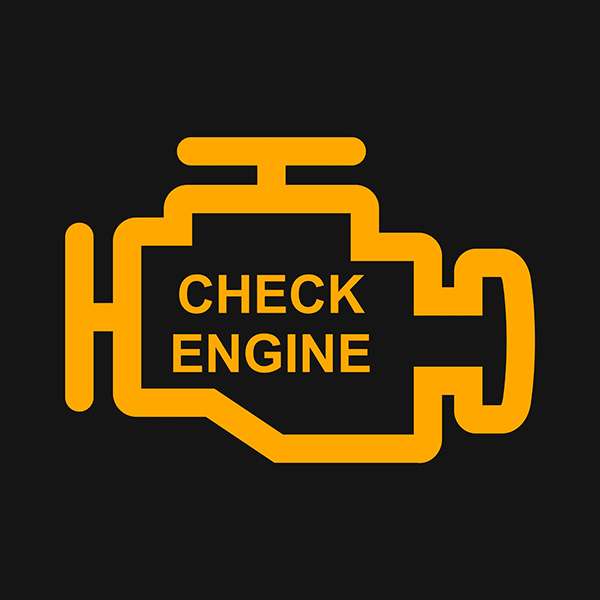
Your check engine light is your dashboard's most misunderstood warning indicator. It’s easy to assume that as long as your car is running fine, the light isn’t a big deal. But ignoring it can lead to serious mechanical problems, expensive repairs, and even a breakdown at the worst possible time. This warning light is your vehicle’s way of telling you that something isn’t functioning as it should. Whether it’s a minor issue like a loose gas cap or a major problem like a failing catalytic converter, putting off an inspection can allow small issues to turn into major, costly repairs. Understanding what your check engine light means and what can happen if you ignore it can save you both time and money. Why Does the Check Engine Light Turn On Your car’s onboard diagnostic system (OBD-II) is designed to monitor key engine and emissions components. When it detects a problem, the check engine light turns on to alert you. The cause cou ... read more
Posted on 2/28/2025
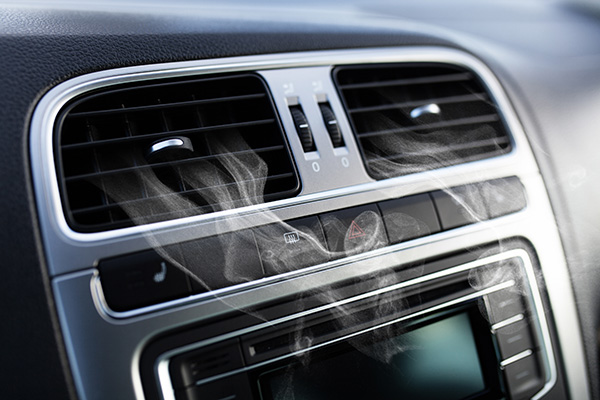
A burning oil smell coming from your car is never a good sign. Whether it's faint or overwhelming, this odor usually points to a problem that shouldn’t be ignored. If your vehicle smells like burning oil while driving or after parking, it could mean an oil leak, worn engine components, or overheating parts. Ignoring the issue could lead to engine damage, costly breakdowns, or even safety hazards. Understanding the most common causes of a burning oil smell and knowing what to do about it can help you keep your car in top condition. If you’ve noticed this unpleasant odor, here’s what might be happening under the hood. Oil Leaks and Dripping Onto Hot Components One of the most common reasons for a burning oil smell is an oil leak. If oil is leaking from the engine and dripping onto hot parts like the exhaust manifold or catalytic converter, it will burn off and produce a distinct odor. Leaks can develop from worn-out gaskets, loose oil filters, o ... read more
Posted on 1/31/2025

If you’re in the market for a vehicle that can handle heavy loads, chances are you’ve heard plenty about diesel engines. But what makes diesel such a powerhouse for towing? Whether you’re hauling equipment, a boat, or a travel trailer, a diesel engine might just be your best bet. Let’s see why diesel engines stand out when it comes to towing. Why Diesel Engines Shine for Towing The secret to a diesel engine’s towing prowess lies in its design. Unlike gasoline engines, diesel engines operate using compression ignition, which allows them to generate more torque at lower RPMs. Torque, in case you’re wondering, is the twisting force that gets your vehicle moving from a standstill — a critical factor when towing heavy loads. Because diesel engines excel at delivering high torque at lower speeds, they’re incredibly efficient at pulling weight without putting extra strain on the engine. This capability makes them a go-to choi ... read more
Posted on 12/20/2024

There’s nothing more frustrating than starting your car on a chilly morning or a humid day only to find your windows fogging up. Not only is it annoying, but it’s also a serious safety hazard. Reduced visibility can lead to dangerous driving conditions, so addressing this issue on time is crucial. If you’re tired of constantly wiping your windows or waiting for them to clear up, you’re not alone. Let’s explore what causes this pesky problem and how you can prevent it. What Causes Car Windows to Fog Up Foggy windows are the result of condensation forming on the glass. This happens when there’s a difference in temperature between the inside and outside of your car, combined with moisture in the air. Warm, humid air from inside your vehicle meets the cooler glass, causing the moisture to condense into tiny droplets that create a foggy layer. Activities like breathing, wet clothing, or leaving an open water bottle in the car can intro ... read more
Posted on 11/29/2024

Planning a holiday road trip? Before you load up the car and hit the road, you must ensure your vehicle is in top shape. A pre-trip inspection may seem like just another item on your to-do list, but it’s a simple, worthwhile step that could make all the difference. Nothing spoils a holiday like unexpected car trouble, especially if you’re in unfamiliar territory. So, how can you help protect your loved ones and your peace of mind? The Importance of a Pre-Trip Car Inspection Why is a pre-trip inspection so crucial? It’s easy to assume that your car is fine if it hasn’t given you any recent issues, but the truth is, some problems only show up under stress—like long drives or packed loads. You’re setting yourself up for a much safer, stress-free journey by catching these issues before they become breakdowns. An inspection can reveal hidden issues that might otherwise lead to costly and sometimes dangerous roadside breakdowns. Beyond ... read more
Posted on 10/31/2024
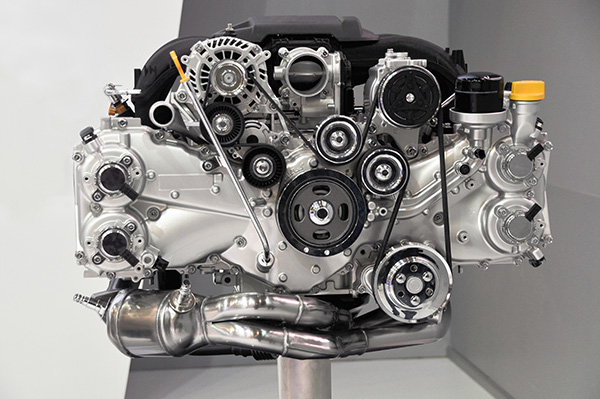
Your car’s engine requires proper care to last. While every engine has a limited lifespan, maintaining it well can add years to its life and prevent costly repairs. If you’re wondering how you can get the most out of your car’s engine, you’re in the right place. Here are key tips to help you ensure your engine keeps running for years to come. 1. Prioritize Regular Oil Changes One of the simplest and most effective ways to extend your engine’s life is by keeping up with regular oil changes. Oil is the lifeblood of your engine, providing crucial lubrication to moving parts and preventing friction that can lead to overheating or even engine failure. Old or dirty oil loses its ability to protect engine components effectively, so following your car manufacturer’s recommended oil change intervals is essential. Pay attention to the type of oil your vehicle requires as well. High-performance or older engines may benefit from synthetic oil ... read more
Posted on 9/27/2024
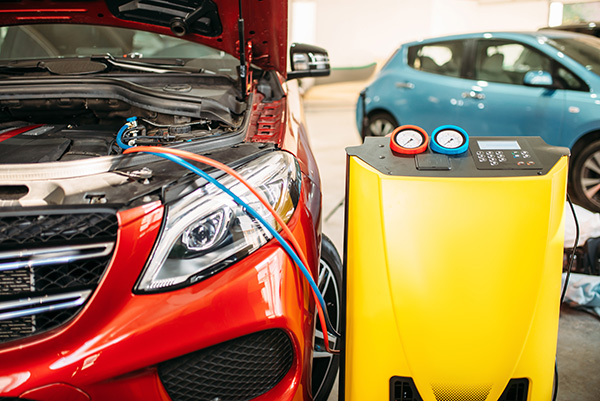
If you’ve recently bought a new car or are thinking about upgrading your vehicle, you may have noticed something different under the hood when it comes to the air conditioning (A/C) system. Specifically, more and more manufacturers are now using 1234YF refrigerant instead of the older, more familiar R-134a. You might be wondering why this change is happening and what it means for your car. A Move Towards Eco-Friendly Refrigerants One of the primary reasons for the switch from R-134a to 1234YF refrigerant is environmental impact. Traditional refrigerants like R-134a contribute significantly to global warming. While R-134a doesn’t harm the ozone layer like older refrigerants (such as R-12), it still has a high Global Warming Potential (GWP). To put this into perspective, R-134a has a GWP of around 1,400, meaning it has 1,400 times the heat-trapping capability of carbon dioxide. In contrast, 1234YF has a much lower GWP of just 4, making it far less harmful ... read more
Posted on 8/30/2024
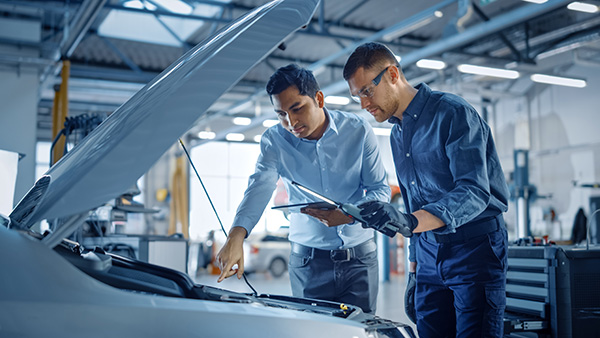
Your car is more than just a mode of transportation - it's a vital part of your daily life. Yet, many of us tend to overlook the importance of regular maintenance until we encounter problems. One of the most crucial maintenance tasks for any vehicle is the tune-up. But why should you get a car tune-up? Let's explore why this service is essential for your car's longevity and performance. Enhancing Your Car's Performance Have you ever noticed your car isn't accelerating as smoothly as it used to? Or maybe it's not as fuel-efficient as it once was? These are clear signs that your vehicle might be in need of a tune-up. A tune-up can significantly enhance your car's performance by ensuring that all its components are functioning optimally. This involves replacing worn-out spark plugs, dirty air filters, and other crucial parts that can degrade over time ... read more
Posted on 7/26/2024
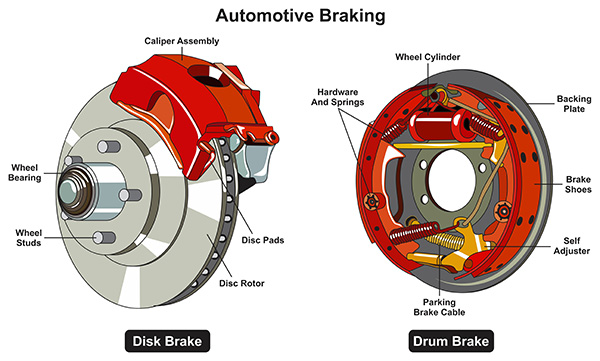
When you think about modern vehicles, advanced technologies and sleek designs often come to mind. Yet, despite the rapid advancements in automotive technology, one component that has stood the test of time is the rear drum brake. You might wonder why rear drum brakes are still common in new vehicles. Let's explain the reasons behind this enduring choice. The Basics of Drum Brakes Drum brakes have been around for over a century, providing reliable stopping power for countless vehicles. They consist of brake shoes that press against the inside of a drum attached to the wheel, creating friction to slow the vehicle. Despite the introduction of disc brakes, which offer superior performance in many aspects, drum brakes continue to be used in the rear of many modern cars. This might seem surprising, but this choice has several practical reasons. Cost Efficiency One of the primary reasons rear drum brakes remain popular is their cost efficiency. Drum b ... read more
Posted on 6/28/2024
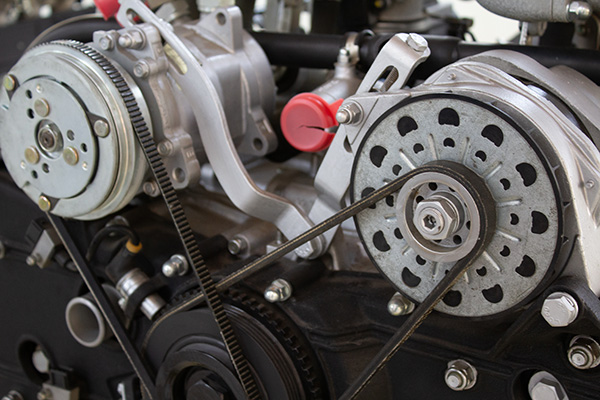
If you've ever popped the hood of your car and noticed a cracked serpentine belt, you might have wondered, "Is this really a big deal?" The serpentine belt, often overlooked, plays a critical role in the operation of your vehicle. It drives multiple peripheral devices such as the alternator, power steering pump, water pump, and air conditioning compressor. But what happens when this essential component shows signs of wear and tear? The Role of the Serpentine Belt The serpentine belt, also known as a drive belt, is a long, winding belt that snakes around various engine components, driving them with the engine's power. When the serpentine belt is in good condition, it ensures that critical functions such as your alternator (which charges the battery), power steering (which makes steering easier), and air conditioning run smoothly. Without it, these systems can fail, potentially leaving you stranded or causing significant damage to your e ... read more